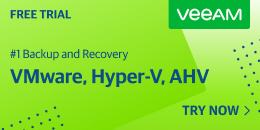In the context of virtualization, vendor lock-in often has negative connotations. But if a company provides solid products and support, this practice of purchasing the bulk of your data center components from a single vendor can be beneficial.
Few vendors have the product lineup to supply every facet of a data center infrastructure, with the exception of Dell Inc., Hewlett-Packard Co., and IBM. But many vendors can fill most IT needs and then bridge the gaps through strategic partnerships. VMware Inc., for example, has teamed up with EMC Corp. and Cisco Systems Inc. to form the Virtual Computing Environment (VCE) coalition. Together, these providers have bundled servers, storage and virtualization capabilities into a single product, which essentially locks customers into their vertical stack.
This tip offers a new way of thinking about vendor lock-in. It covers the pros and cons of this approach to building your virtual infrastructure and provides advice for those who choose a single-vendor approach in a virtual environment.
Read the full article at searchvmware.com…




2 comments
Because things like the VCE telling you if you upgrade the ram that you’ve voided the support agreement. The more locked into a vendors stack you are the less room you have to negotiate, recently HP was pissing me off a bit about some upgrades we were doing to HP servers with genuine HP parts so I told em if they didn’t want to support their stuff I would gladly switch to Dell or IBM for future server purchases, it’s a bit harder to do that if you have an entire infrastructure bundled from that vendor.
no offend about your post, I do not think vBlock is a single solution nor the perfect solution for everything. Look at the config they have, it might not fit for every environment, which they claim to support x amount of VMs. In reality, more details study about what to be virtualized or what to be optimumed are important. VCE may be good idea. vBlock just will not be fit for every scenario. Cisco, VMware & Netapp also provide flexpod and secure multi-tenancy architecture. Rather than part number, the value behind the infrastructure and sizing should be considered too.